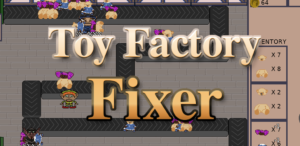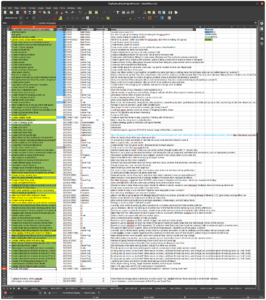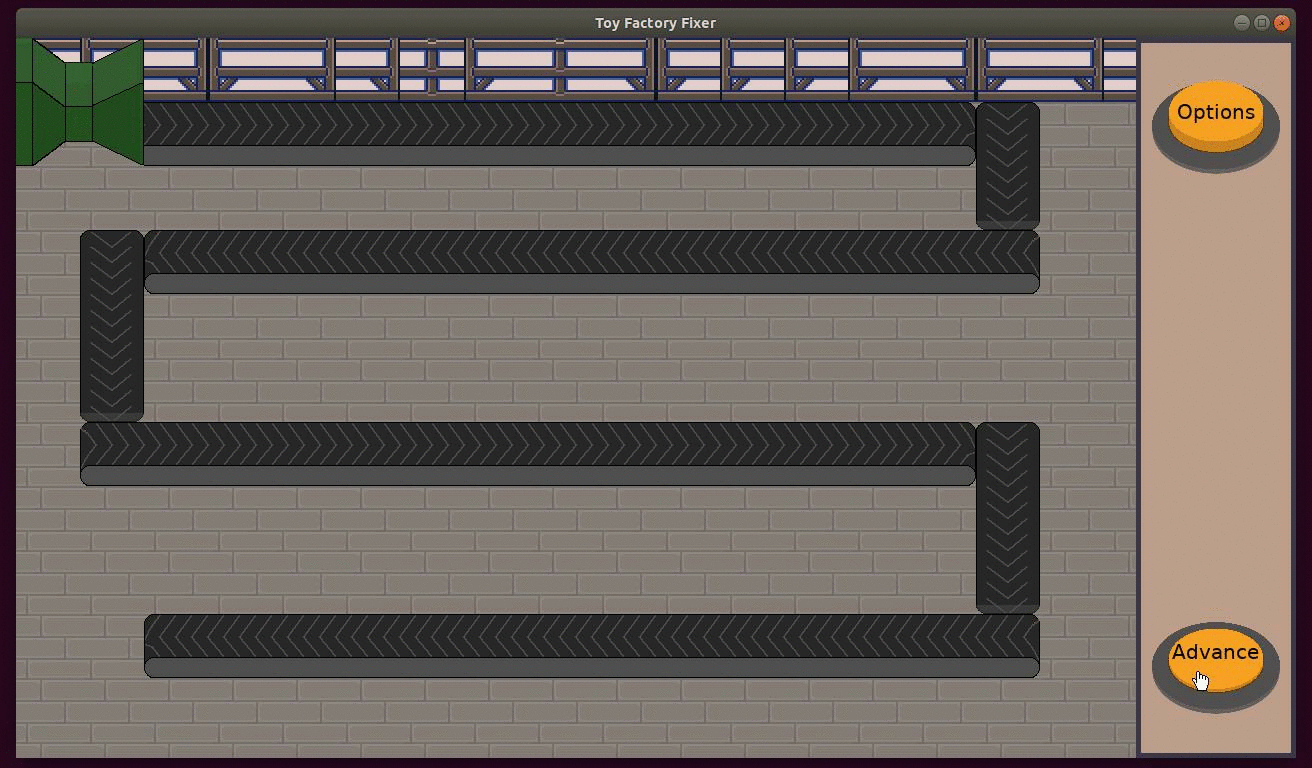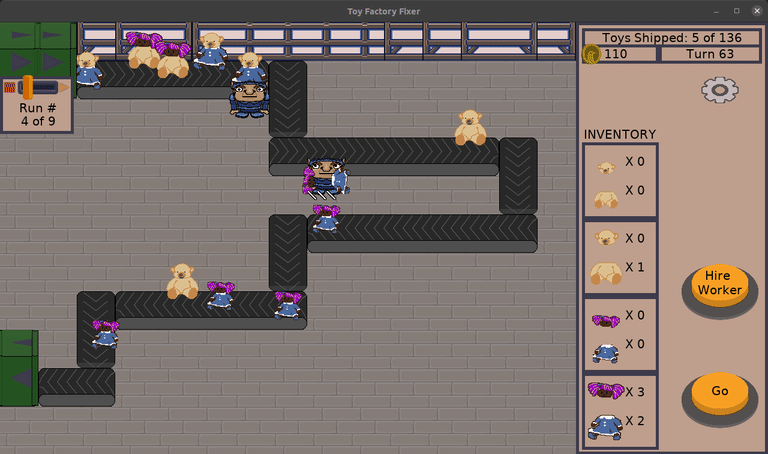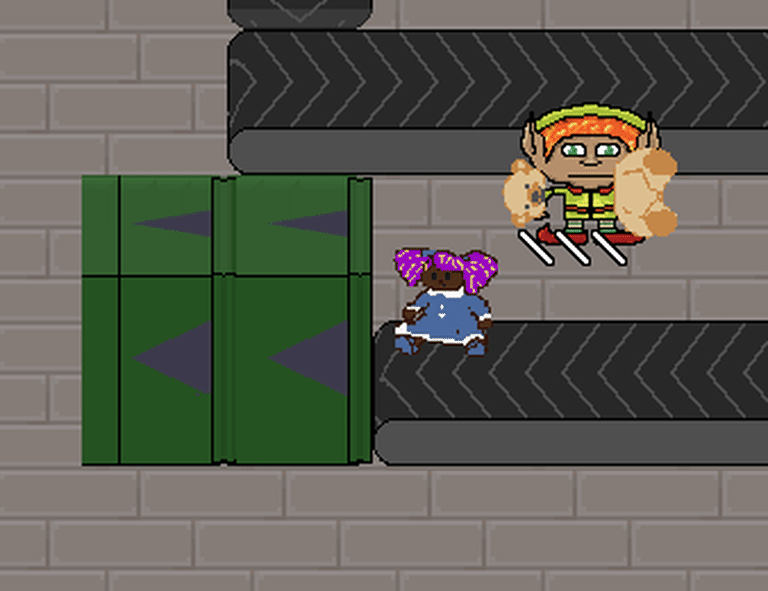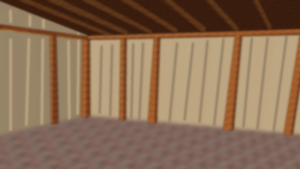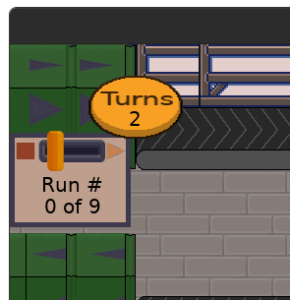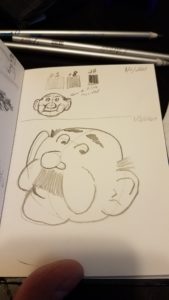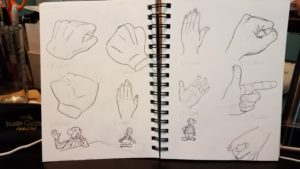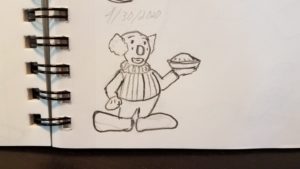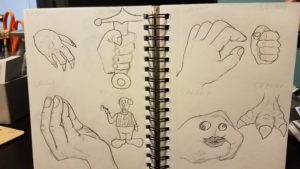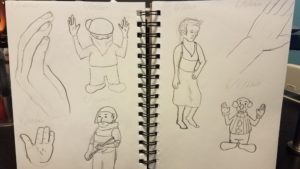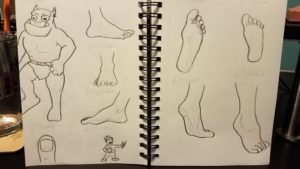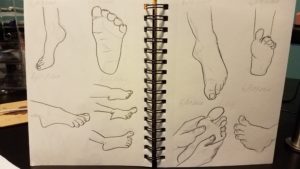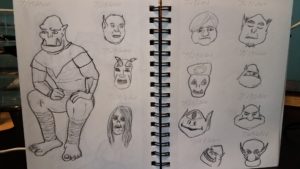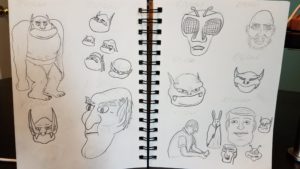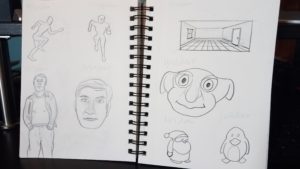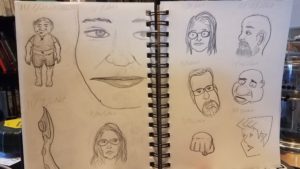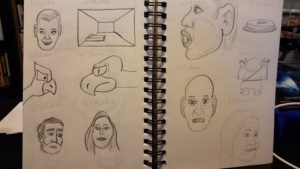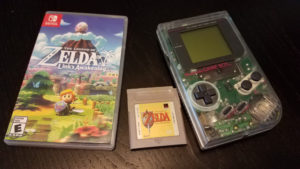2021 ended weeks ago, and I’m only now getting around to having a retrospective about it.
We’re in our third year of a pandemic that a lot of us thought would be over within weeks or months at most.
Once again, my immediate family somehow managed to make it through the year unscathed as far as we know. I know a number of people who have tested positive for Covid, and we’ve lost a few people we knew.
I’m still employed and working the day job from home, and since I work in software consulting, it translates into a relatively comfortable income and life for my family.
We’re all fully vaccinated, and most of us have gotten a third vaccine. Recently with developments of variants, we’ve upgraded to KN95 and N95 masks.
And since our society in general seems interested in actually helping the pandemic, it seems like this is our foreseeable future.
That said, we’ve started venturing out of the house a bit more in the last year. My children participated in sports, and I even acted as unofficial assistant soccer coach for my daughter’s team. We’ve visited with family.
Some things felt normal, despite feeling weird, and despite knowing that some people are immunocompromised and most at risk as society prematurely decides the pandemic is over. It’s disappointing.
So with the pandemic as background music, how was 2021 for GBGames?
Goals from 2021
As I wrote last year in 2020 in Review and My 2021 Vision, my goals for 2021 were:
- Go from ~0.146 sales per week to at least 1 sale per week by December 31st
- Increase my newsletter audience to at least 100 subscribers by December 31st
- Release at least 6 Freshly Squeezed Entertainment games by December 31st
Increasing sales and increasing my newsletter audience aren’t things I have direct control over. They are lagging metrics, the kinds of numbers I can look at after the fact.
The only one of those goals I had direct control over was publishing games. This is a leading metric. That is, my hypothesis is that if I quickly work on and publish playable, polished prototypes, that it will lead to people finding my games and eventually subscribing to my newsletter.
And what I hypothesize is that those subscribers have shown they like my games and are more likely than random strangers to pay for Toytles: Leaf Raking and future non-free games I publish.
So how did I do?
Sales (Target: 52) – 5
In 2020, I sold 7 copies of Toytles: Leaf Raking. So, selling less means I went backwards in terms of results.
If there’s a bright side, unlike in 2020, I only released one update for the game, and most of my focus was on my new development. So 71% of the previous year’s sales despite a near-complete lack of me talking about the game?
Maybe that’s not bad, but it was clearly not anywhere near the increase I wanted.
GBGames Curiosities Newsletter subscribers net increase (Target: 84) – 6
I went from 16 subscribers to 22, about a 38% increase. Considering how the next goal’s results went, I’m taking it as a minor win, despite not hitting my goal of what now seems like a ridiculous expectation of a 525% increase.
And, no one has unsubscribed, so that’s another win in my book.
As this was probably the most important goal in terms of how much it will impact the future of GBGames, it is a bit disappointing, but again, it is a lagging metric. I can’t control it directly. Which leads me to what I could control.
Published Freshly Squeezed Games (Target: 6) – 1
Toy Factory Fixer was the only game I published last year, and it didn’t get released until mid-December.
So on the one hand, I am disappointed that I fell so far short of my original goal. Having such a late release meant that I spent most of the year not knowing how my Product Development Strategy was going to work out experimentally, which made me worry about the risk of taking so long to release something to get that feedback even more.
On the other hand, I finished and released a game I’m proud of, people are still downloading it and playing it, and I have already received some nice reviews.
And I think my regular posting about development progress has led to people signing up for the newsletter, so there is a direct connection happening there.
Analysis
Now, I think much like my arbitrary one month deadline for Toy Factory Fixer, these goals were more wishes than anything. I had no solid plan in place to make them happen, and any plan I did have was a bit vague and untested.
Literally, my plan was to release free games, hope some of the players signed up for my newsletter, and hope those subscribers eventually became paying customers.
And I think it isn’t a bad strategy overall, but in retrospect I was deluding myself with the fixed numbers I made up without anything to justify them.
I mean, I’ve made games in a weekend before, so taking two months instead of one month to make a game sounded like I was right-sizing that goal, but my experience with Toy Factory Fixer showed me that I was going to need to do something different if I wanted to make games anywhere near that fast that I would still feel good about releasing to the public. And everything else hinged one me releasing Freshly Squeezed Entertainment.
I wrote a post-mortem for Toy Factory Fixer, so you can read that post if you want to see my analysis of what I think went well and what went wrong and what I learned from it.
Otherwise, I think in general my specific goals were unrealistic. Which is frustrating because they feel like they shouldn’t be. In fact, I thought 100 subscribers was something I would hit much earlier in the year, and that what I was really hoping for was 12 games in a year.
Imagine if I made a game of the quality of Toy Factory Fixer every two or three months. Is it so unrealistic that I would have had 100 subscribers to my mailing list by the end of the year?
By my math, if I only gain 6 subscribers a year for some reason, am I really looking at 13 more years before I hit that number? That’s ridiculous.
But clearly something has to change if I want different results.
What else?
Well, I tracked 299 hours of game development, which is pretty close to almost twice what I did the previous year. 300 hours in a year might not sound like much, as it amounts to a little less than two months of full-time effort, but since I am part-time and have a family and other obligations, it represents the fact that I made it a priority to put in effort week after week.
I published 60 blog posts, slightly more than the 58 from the year before, and it was mostly weekly sprint reports. Those reports functioned almost like a combination sprint retro and demo, in which I demonstrated what I got accomplished. I got into the habit of writing the report, then planning the next sprint once I had taken time to think about how things went. Plus, people responded positively, especially when I had animated GIFs or videos to share, and since I love reading about behind-the-scenes of games, I thought others might, too.
I created an update for Toytles: Leaf Raking. It’s more compatible with modern Android and iOS systems. Otherwise, I haven’t changed anything about the game since the previous year. My expectation was that I would work on a Freshly Squeezed game, then work on a Toytles: Leaf Raking update, then work on another Freshly Squeezed game, but obviously I had no concept about how I was going to make that work.
Without contract work and with very few sales, it was very easy to have a lot more expenses than revenue. I can’t control my income, but I can manage my expenses a lot better going forward.
My personal goals for the last year were similar to the year before:
- Do a minimum number of walking hours, push-ups, squats, and planking
- Read a book per week
- Create at least one doodle per day
- Do 15 minutes of focused learning a day
I successfully did 15 push-ups, 15 squats, and 30 seconds of planks every day of 2021. Look at all that green in those columns!

Technically, my daily exercise streak goes back to October 19th of the previous year.
I also did yoga on most weekends, and I think my body feels more physically capable than it has in a long time. In the past I would sometimes hurt my back or side, but I’ve been able to avoid seeing a medical professional for a long time.
Unfortunately, I rarely did anything cardio-related. Once again, the best of intentions doesn’t mean much, and my goal of walking everyday was hampered by the lack of habit, the broken treadmill I’ve been meaning to repair, and a lack of commitment. I sit too much, especially since I have my day job work and then put in even more time for my business.
I read a total of 33 books last year, the most in a given year since I stopped listening to audiobooks and switched to podcasts in my car a few years ago. I count 11 books related to games, including a bunch from Ian Bogost and a couple about making games with deeper meaning. Another 10 books were productivity or business-related.
I only read four fiction books, including Seveneves and A Game of Thrones, each of which took up a significant amount of my before-bedtime reading. I also greatly enjoyed Redwall, which was seemingly even more brutal than A Game of Thrones was.
Other books were related to history, parenting, comics, or DIY renewable energy.
I continued to do a daily doodle, alternating between drawing faces, drawing objects, and body parts like hands, legs, and feet. Sometimes I did cartoony drawings, and sometimes I tried to make it as realistic as I could. Once in a great while, I would look up a tutorial online, but I felt like I was in a holding pattern of putting in the time to make the doodle but not really growing in skill.
The new thing I tried to do was make explicit time for learning. I value learning and growth, and in the past I have invested in books, conferences, online courses, and such, but I never made an explicit plan to take advantage of those investments. So I made it a daily habit. 15 minutes a day adds up over time. I tracked 137.75 hours of learning, on topics as varied as game programming, game art, game production, creativity, and various personal development and technical things. I have had a Pluralsight subscription for the past couple of years, and this goal allowed me to take advantage of it more than I have in the past.
Goals for 2022
If the last year has shown me anything, it’s that even if I were to write down all of the outcomes I would like, it means nothing without a plan and without my capacity to work on that plan.
In 2010, I quit my job and became a full-time indie game developer. After running out of cash, I went back on “corporate welfare” in 2012. My expectation then was that I would build up some savings and quit again, but I didn’t take into account how being married and having a family would affect my risk assessment (or how much my family’s risk tolerance would inform my decisions), and I have had a day job ever since.
Clearly I wasn’t going to accidentally make GBGames my main employment, so last summer I started writing a “Full-time Indie Plan.” I wrote down how much money I was currently earning from my day job and how much money our family budget currently is vs what it would look like cut to its essentials. I documented details about platforms, revenue sources, challenges, risks, what I wanted to accomplish and what I explicitly didn’t want to do (such as spy on customers or bombard them with ads) and more. And the most important part of it is answering questions about how I was going to make it happen, such as identifying exactly what needs to happen in terms of sales, marketing.
This document isn’t finished, and while I expect it to be a living document, I recognize that I am repeating mistakes I’ve made before when I’ve done similar exercises in the past. Namely, I can come up with a lot of questions or categories, but then I don’t actually address them.
So while I have documented what I value, such as privacy, encouraging curiosity, supporting creativity, and others, and while I have done a SWOT analysis (although maybe I can iterate on it some), I haven’t answered questions about who my audience is and how I can reach them. I haven’t made a solid plan for actually marketing my games besides blogging and sharing on social media. It’s a 13 page document that has a lot of TODOs and headings without content in it.
But of course, I only have so many hours in a day. Even if I could identify 100 marketing activities, if I can’t actually make time to do them or manage someone else doing them, it does me no good.
My current lack of capacity should inform my goals more than they have in the past. Any marketing I would do would be inbound in nature rather than outbound, as it is less expensive and takes advantage of doing something once, such as publishing a blog post, and distributing it multiple times for near free.
So here are my goals for 2022:
- Release at least 2 Freshly Squeezed Entertainment games by December 31st
- Increase my newsletter audience from 22 to at least 34 subscribers by December 31st
- Earn at least 1 sale per month by December 31st
I still think my overall Product Development Strategy is still sound. Create free value, ask for permission to talk with people who have shown they like my games, and then use their feedback to help me make deluxe games that are more likely to sell.
Creating two games in a year should be doable if I put on my game producer hat more often. I would love to try for four games, giving each one on average about three months, but I’m already worried that I’m still overestimating my capacity with two.
My newsletter went up by 6 subscribers last year. Now that I have one Freshly Squeezed Entertainment game out and expect to have at least one more by the middle of the year, can I find 12 more fans who are interested enough in my games to sign up?
I don’t have a sales plan in place, and clearly one sale a week was too ambitious. Still, one sale a month sounds like a ridiculously small amount, but then again, it is clearly a difficult goal for me at this time. It works out to a little more than double the sales I made in 2021, which was slightly fewer than sales from 2020. Making that trend go back up will be huge.
Besides those overall goals, I do want to spend some time porting my existing games to desktop platforms, and I’ll need time for that effort that isn’t going to be going into new development. I already develop on my Ubuntu system, so creating a Linux-based release shouldn’t be difficult, but since both Windows and Mac OS are trying to be walled gardens, I need to figure out how I can create free games for them without it costing me a ridiculous amount of money.
I also want to make time to actually play games. Between all of my old consoles, Steam, Humble Bundle, GOG, and Itch, I have a lot of games, many of which I’ve paid for, that I never enjoy or even learn from. Last year I played Castles I, Sunless Sea, To the Moon, Minecraft, and Super Crate Box, and shortly after I released Toy Factory Fixer, I allowed myself to play The Legend of Zelda: The Wind Waker during my week off from the day job near the holidays.
But much like my 15 minutes of learning each day habit, I’d like to make regular time to play games, even if it isn’t daily, even if it is a dedicated part of a day once a month.
Ok, so maybe two games in a year is starting to sound ambitious…
Anyway, I hope you have a safe and healthy 2022! Happy New Year!



